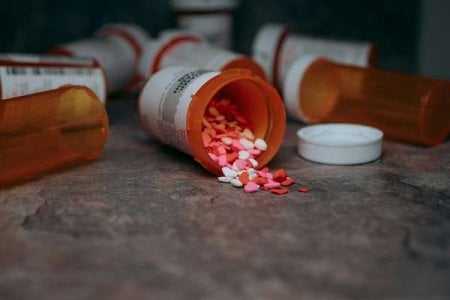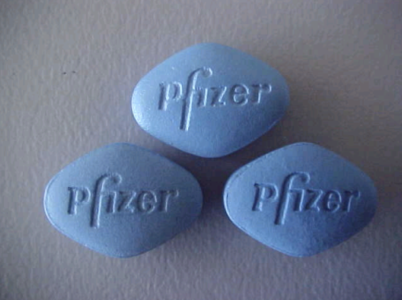Buying medicine online? Here’s why seniors are being urged to think twice
- Replies 5
The internet has made life easier in so many ways—especially for those of us who remember the days of waiting in long pharmacy queues or feeling a bit embarrassed about asking for certain medications at the counter.
But as with all things online, there’s a catch: a new wave of sophisticated scams is targeting Aussies, especially those seeking pharmaceuticals without a prescription. And the risks? They go far beyond just losing a few dollars.
If you’ve ever searched for medication online—whether for erectile dysfunction, hair loss, weight loss, or even bodybuilding supplements—you’ve probably seen websites promising fast, discreet delivery with 'no prescription needed.'
Sounds convenient, right? Unfortunately, these sites are often part of a global scam phenomenon known as 'pharma fraud,' and they’re popping up by the thousands.
Cybersecurity company Avast recently detected over 5,000 such sites worldwide, with a staggering 41 per cent targeting men’s sexual health.
In just the first half of this year, Avast blocked 21,000 attacks on Australians alone. And that’s just the tip of the iceberg—many more scams slip through the cracks, especially for those without protective software.

Spotting scams online isn’t as straightforward as it once was. 'It is so hard to pick these days,' said Kho. 'It used to be that dodgy spelling made it easy to pick, but nowadays things look glossy and professional and the grammar is good.'
'Vibe coding,' a new AI development, allows scammers to generate dozens of convincing websites every day, complete with Australian URLs, local currency, and promises of shipping to your suburb.
Stephen Kho, a cybersecurity expert at Avast, explains: 'You can literally talk to an AI chatbot and say, ‘Create me a website with a checkout and this kind of wording, for this kind of product, to sell in this colour, and add these features—and it will produce it.
He adds, ‘You can test it, tweak it and deploy it, and suddenly you’ve got a URL.’
Even the Therapeutic Goods Administration (TGA) warns that many of these sites look Australian but are actually run from overseas, distributing unregulated or even dangerous products.
Scammers know that shame and embarrassment can drive people to seek out 'discreet' online options.
They use emotional triggers and urgency—think 'limited time offer!' or 'last chance for discreet shipping!'—to push people into making quick decisions.
And with legitimate sites like Temu also using urgency tactics, it’s getting harder to tell the difference between a real deal and a dangerous scam. 'There is now an additional layer of difficulty to discerning a fake website,' Kho said.

Like many forms of fraud, scammers rely on psychological tactics. Kho explains that they often use 'emotional triggers or a sense of urgency' to prompt quick action.
He warns that anything that raises suspicion is worth pausing over. 'Look at what regulations we have in Australia, pharmaceuticals are heavily regulated, so that should be ringing alarm bells.'
Sites that don’t request a prescription should raise immediate concerns. 'If a site is not asking for prescriptions, that is clearly dodgy, because you’re bypassing it from a safety perspective, but also there can be money lost.'
Scam websites may either take your payment without delivering anything or send unregulated substances that put your health at risk. The TGA has warned that fake medicine 'could be diluted, contaminated, or even just chalk.'
As they put it: 'Anyone that is willing to break the law to take your money could also be willing to cheat you or risk your health.'
The consequences are serious. According to the World Health Organisation, counterfeit drugs may be responsible for up to a million deaths each year.
Closer to home, the Australian Federal Police issued a warning in May after counterfeit painkillers containing synthetic opioids — some ten times more potent than fentanyl — were found in NSW, Queensland, Victoria, and the ACT.
Even when overdose isn’t a risk, counterfeit medication can cause allergic reactions, contamination issues, or simply be ineffective.
The TGA also notes that weak antibiotics contribute to the larger global issue of drug resistance: 'In the case of diluted antibiotics, understrength medicines contribute to antimicrobial resistance.'
Source: 10 News / Youtube.
Unfortunately, the visual differences between real and fake medication aren’t always obvious. In one example, genuine and counterfeit tablets looked nearly identical — the real Pfizer pill sat beside two fake versions, indistinguishable to most.
There’s also a financial cost. 'Companies spend a lot of money and resources fighting imitation medicines, which, in turn, may lead to higher costs for the consumer,' the TGA said.
So what can people do? Kho urges caution and a few extra steps before making a purchase. 'If you get a link to a pharmacy site, instead of clicking on it, do a Google search for that site and first look at reviews,' he suggested. Negative comments can be a strong clue: 'is a good indication' the site is untrustworthy.
Kho also stresses the importance of open discussion around pharmaceutical scams. 'Because of the taboo nature, people are probably not even reporting it,' he said. 'There’s also that thing of buying something without a prescription and not wanting to report it to police for that reason.'
Scammers know this — and are taking full advantage. 'Scammers are really targeting the Australian population, and for whatever reason, we’re falling for it,' Kho warned. 'We’re losing money, and we’re probably getting our credentials stolen.'
One of the reasons these scams are so successful is the stigma around certain health conditions. Many people feel too embarrassed to talk to their GP or pharmacist, so they turn to the internet for a 'quick fix.'
But remember: you’re not alone, and there’s no need to risk your health or your hard-earned money.
Read more: Fake meds are getting past Aussie borders—here’s how to spot them

Have you ever been tempted to buy medicine online? What made you hesitate or go ahead? Have you spotted any suspicious sites? Let us know your thoughts and experiences below!
But as with all things online, there’s a catch: a new wave of sophisticated scams is targeting Aussies, especially those seeking pharmaceuticals without a prescription. And the risks? They go far beyond just losing a few dollars.
If you’ve ever searched for medication online—whether for erectile dysfunction, hair loss, weight loss, or even bodybuilding supplements—you’ve probably seen websites promising fast, discreet delivery with 'no prescription needed.'
Sounds convenient, right? Unfortunately, these sites are often part of a global scam phenomenon known as 'pharma fraud,' and they’re popping up by the thousands.
Cybersecurity company Avast recently detected over 5,000 such sites worldwide, with a staggering 41 per cent targeting men’s sexual health.
In just the first half of this year, Avast blocked 21,000 attacks on Australians alone. And that’s just the tip of the iceberg—many more scams slip through the cracks, especially for those without protective software.

New AI technology is making these pharmaceutical scam websites more convincing and harder to spot, with scammers able to quickly create slick, professional-looking pages that use Australian URLs and currency. Image source: Lance Reis / Unsplash. Disclaimer: This is a stock image used for illustrative purposes only and does not depict the actual person, item, or event described.
Spotting scams online isn’t as straightforward as it once was. 'It is so hard to pick these days,' said Kho. 'It used to be that dodgy spelling made it easy to pick, but nowadays things look glossy and professional and the grammar is good.'
'Vibe coding,' a new AI development, allows scammers to generate dozens of convincing websites every day, complete with Australian URLs, local currency, and promises of shipping to your suburb.
Stephen Kho, a cybersecurity expert at Avast, explains: 'You can literally talk to an AI chatbot and say, ‘Create me a website with a checkout and this kind of wording, for this kind of product, to sell in this colour, and add these features—and it will produce it.
He adds, ‘You can test it, tweak it and deploy it, and suddenly you’ve got a URL.’
Even the Therapeutic Goods Administration (TGA) warns that many of these sites look Australian but are actually run from overseas, distributing unregulated or even dangerous products.
Scammers know that shame and embarrassment can drive people to seek out 'discreet' online options.
They use emotional triggers and urgency—think 'limited time offer!' or 'last chance for discreet shipping!'—to push people into making quick decisions.
And with legitimate sites like Temu also using urgency tactics, it’s getting harder to tell the difference between a real deal and a dangerous scam. 'There is now an additional layer of difficulty to discerning a fake website,' Kho said.

Australians are increasingly being targeted by online pharma fraud scams, with thousands of dodgy websites selling prescription medications—often without requiring a prescription. Image source: TGA.
Like many forms of fraud, scammers rely on psychological tactics. Kho explains that they often use 'emotional triggers or a sense of urgency' to prompt quick action.
He warns that anything that raises suspicion is worth pausing over. 'Look at what regulations we have in Australia, pharmaceuticals are heavily regulated, so that should be ringing alarm bells.'
Sites that don’t request a prescription should raise immediate concerns. 'If a site is not asking for prescriptions, that is clearly dodgy, because you’re bypassing it from a safety perspective, but also there can be money lost.'
Scam websites may either take your payment without delivering anything or send unregulated substances that put your health at risk. The TGA has warned that fake medicine 'could be diluted, contaminated, or even just chalk.'
As they put it: 'Anyone that is willing to break the law to take your money could also be willing to cheat you or risk your health.'
The consequences are serious. According to the World Health Organisation, counterfeit drugs may be responsible for up to a million deaths each year.
Closer to home, the Australian Federal Police issued a warning in May after counterfeit painkillers containing synthetic opioids — some ten times more potent than fentanyl — were found in NSW, Queensland, Victoria, and the ACT.
Even when overdose isn’t a risk, counterfeit medication can cause allergic reactions, contamination issues, or simply be ineffective.
The TGA also notes that weak antibiotics contribute to the larger global issue of drug resistance: 'In the case of diluted antibiotics, understrength medicines contribute to antimicrobial resistance.'
Source: 10 News / Youtube.
Unfortunately, the visual differences between real and fake medication aren’t always obvious. In one example, genuine and counterfeit tablets looked nearly identical — the real Pfizer pill sat beside two fake versions, indistinguishable to most.
There’s also a financial cost. 'Companies spend a lot of money and resources fighting imitation medicines, which, in turn, may lead to higher costs for the consumer,' the TGA said.
So what can people do? Kho urges caution and a few extra steps before making a purchase. 'If you get a link to a pharmacy site, instead of clicking on it, do a Google search for that site and first look at reviews,' he suggested. Negative comments can be a strong clue: 'is a good indication' the site is untrustworthy.
Kho also stresses the importance of open discussion around pharmaceutical scams. 'Because of the taboo nature, people are probably not even reporting it,' he said. 'There’s also that thing of buying something without a prescription and not wanting to report it to police for that reason.'
Scammers know this — and are taking full advantage. 'Scammers are really targeting the Australian population, and for whatever reason, we’re falling for it,' Kho warned. 'We’re losing money, and we’re probably getting our credentials stolen.'
One of the reasons these scams are so successful is the stigma around certain health conditions. Many people feel too embarrassed to talk to their GP or pharmacist, so they turn to the internet for a 'quick fix.'
But remember: you’re not alone, and there’s no need to risk your health or your hard-earned money.
Read more: Fake meds are getting past Aussie borders—here’s how to spot them
Key Takeaways
- Australians are increasingly being targeted by online pharma fraud scams, with thousands of dodgy websites selling prescription medications—often without requiring a prescription and frequently imitating Australian sites.
- New AI technology is making these pharmaceutical scam websites more convincing and harder to spot, with scammers able to quickly create slick, professional-looking pages that use Australian URLs and currency.
- The risks from these scams are serious, ranging from financial loss, receiving contaminated or fake medicines, to being exposed to highly dangerous drugs that can lead to severe health consequences or even death.
- Authorities urge Aussies to be cautious, always check for legitimate reviews and regulations, and avoid purchasing pharmaceuticals from unknown or non-prescription sites, as reporting and awareness remain low due to the stigma around some medications.
Have you ever been tempted to buy medicine online? What made you hesitate or go ahead? Have you spotted any suspicious sites? Let us know your thoughts and experiences below!







